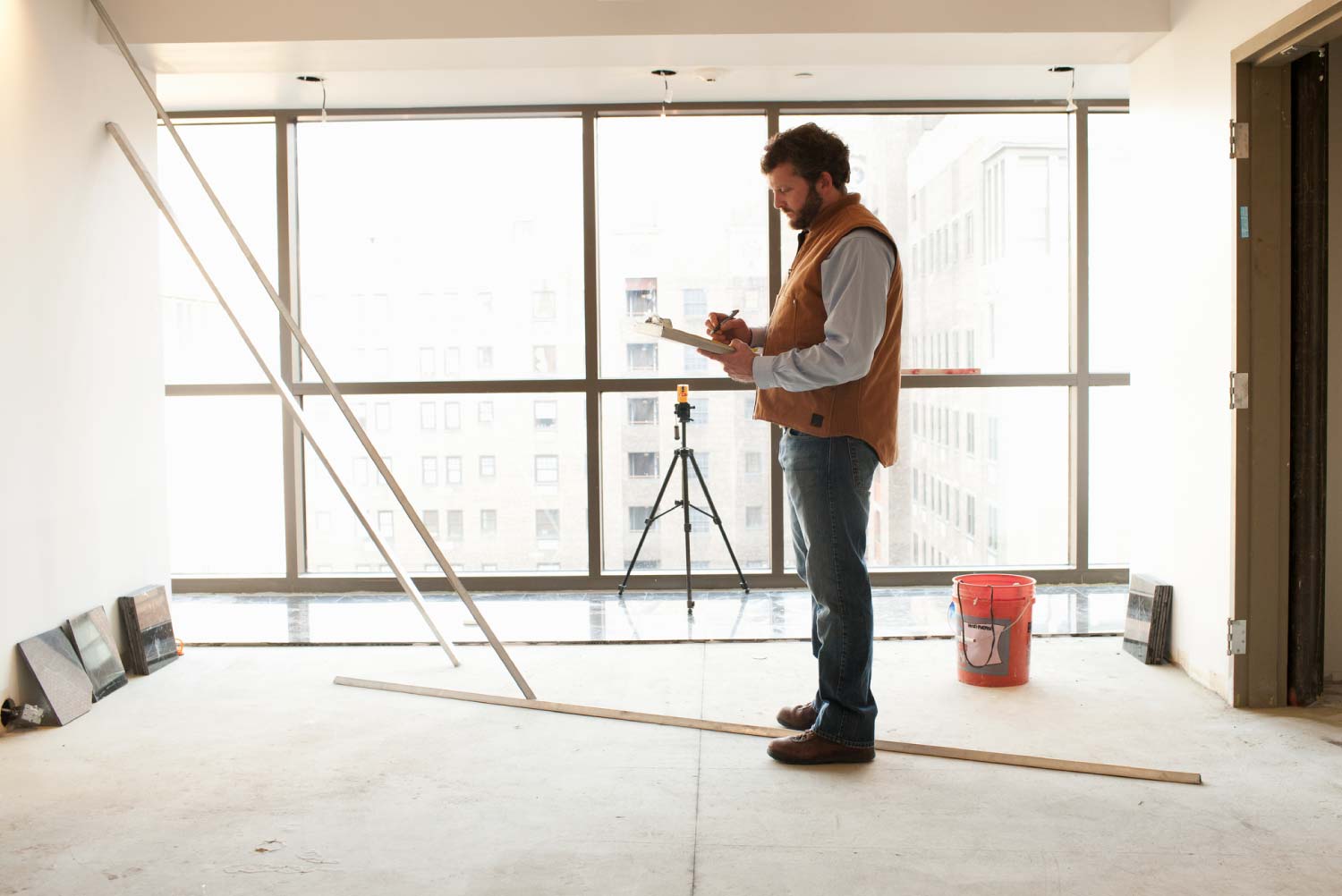
Curious how much general contractors charge per hour? Discover hourly rates, key cost factors, and tips to save on your next home project.
Find out when you will—and won’t—have to pay a fee for estimates, inspections, and consultations


Contractors don’t usually charge for estimates on small jobs.
Contractors will charge for inspections, in-depth consultations, and large project estimates.
In most cases, the money you pay for an estimate will go toward the project cost as long as you hire that same contractor.
Homeownership is a wild ride. One moment everything is working as it should, and the next, your fridge isn’t cooling properly and your air conditioner is making a death rattle. But before you call a contractor in to take a look, it’s helpful to understand the process and how to respond to your contractor’s quote.
Do contractors charge for estimates (and how are they different from inspections and consultations)? Here’s everything you need to know.
A contractor estimate is the expected costs of a project. For straightforward work, like pressure washing, painting, or window cleaning, an estimate may be all you need. For an estimate, a contractor will come to your home, take a look at the scope of the work and give you a ballpark figure on what it will cost.
However, estimates are just that, estimates, and may be subject to change after the work begins if the scope or nature of the work changes.
Say you call in someone to repair a dishwasher. The contractor may give you an estimate, but if they notice pipe corrosion or another plumbing problem in the process, you may need to pay more to fix everything or to ensure the appliance will run smoothly.
The typical price range for general contractor rates is between $250 to $58,000—the average being $4,000
Contractors can provide estimates for most types of residential projects. Common jobs include kitchen and bathroom remodels, roofing, siding, flooring, painting, electrical work, and plumbing. Estimates may also cover outdoor projects like landscaping, decks, patios, and fences.
In many cases, a contractor will not charge for an estimate on smaller jobs like painting, window washing, or lawn services. If the work is simple and doesn’t require in-depth consultation or design work, estimates are generally free of charge.
For example, if you have hired a contractor to paint your bathroom, they will take a few measurements, discuss what type of paint you want and whether you want any embellishments or custom finishes, and give you a general idea of what you can expect to pay.
Free home repair estimates are one way small businesses and independent contractors compete with large companies. If a contractor does charge for an estimate for whatever reason, in many cases, the money you pay is put toward your final total if you book the service with that contractor. If you’re unsure, learn how to accurately compare remodeling estimates using this guide.
It is always best to handle these situations with clear communication and respect. If an estimate is much higher than you expect, ask for a breakdown of costs to understand how the money will be spent. This could help you and the contractor make cost adjustments. Remember, any contractor that values your business will be open to discussing your budget—so don’t decline an estimate until you thoroughly discuss things.
If you need a repair and the problem isn’t easy to see, a contractor might need to do an inspection to diagnose the problem. If your dishwasher is leaking all over your kitchen floor, a contractor will need to spend time taking apart the machine to find what’s causing your leak. This is an inspection.
Inspections can be time-consuming for the contractor and generally require technical know-how to determine the source of the issue.
Considering the potential time, knowledge, and skill-set required to diagnose a problem, contractors usually charge for inspections. This is called a service fee and can range anywhere from around $50 to over $100, depending on the nature of the problem.
After diagnosis, the contractor will give you an estimate on how much it will cost to repair the problem. These estimates may include an hourly rate or a flat fee, and the cost of any parts needed to complete the repair. You can accept or decline the estimate, but the service fee is required and is usually paid before the contractor leaves the premises.

For big jobs, like remodels and additions, you’ll need a consultation before signing a remodeling contract. If you’re in the market for a full kitchen or bathroom remodel or an addition like a deck, patio, or other outdoor living space, your contractor will want to schedule a consultation.
A consultation usually involves an in-depth conversation about the goal of the job and design work to ensure the contractor understands your vision. The contractor might need to draw up several plans, make revisions, determine subcontractor needs, or work with designers to complete the initial consultation.
Any consultation is going to come with a price tag attached. Depending on the project, the scope of the work, and the potential time commitment, consultations may cost upwards of $1,000. These fees pay for the contractor’s time and expertise in determining how much the project will cost you.
After the consultation is complete, the contractor will submit a bid, which is how much they anticipate the total cost to be. Occasionally, the consultation fee will count towards the project cost total.

Now that you know when contractors charge for estimates, inspections, and consultations, you’ll want to look into hiring a general contractor in your area to handle your next project.
Ask questions of your contractor, like how long they’ve been in business and if they have before and after photos they can show you. You’ll also want to check out their online presence, along with reviews and ratings to avoid making mistakes when hiring a contractor.
Knowing what to expect during the hiring process will help ensure your project goes off without a hitch.
365 Kool arrived earlier than expected and priced me out fairly. The technician even notified me of other potential issues. This company truly cares!
Amazing work been using this company since over 10 years amazing people to deal with great prices fixed all my homes that I own highly recommend
Exceptional quality of work, customer satisfaction oriented. I wanted to do interior work and was so impressed I asked for shingle roof and siding work on my home also, which came out very great. Any questions and concerns, Galaxy contractor answered my questions. Thank you guys.
Doug did an outstanding job. We contacted him back in July (based on his reviews on Angie's List)-- because we needed some carpentry work done at our home in Westhampton Beach. He was on time (actually arrived early for our first meeting), reliable, a pleasure to deal with and most of all his...
They were horrible. I do not know what was going on. I do not know what happened in the initial interaction, it was over eight weeks before they even got back to me and by that time I was starting to look at other places. I was so disconcerted by them I called American Express and gave the...
From average costs to expert advice, get all the answers you need to get your job done.

Curious how much general contractors charge per hour? Discover hourly rates, key cost factors, and tips to save on your next home project.

Recessed living rooms used to be popular but have fallen out of favor. This guide discusses the cost to raise a sunken living room to modernize your home.

Brick walls can add character and elegance to interior and exterior spaces. Use this brick wall cost guide to see the price range for adding one to your home.

When planning a home renovation or remodel, asking your contractor to reduce the price of the job is never an easy task. But negotiation is possible! Read these tips for negotiating with a contractor the right (and effective) way.

Deciding between using cedar vs pressure-treated wood for your outdoor project comes down to budget, appearance, durability, maintenance, and other factors.

An unexplained smell in your home could come from several sources. Use this guide to help you identify what could be causing it.